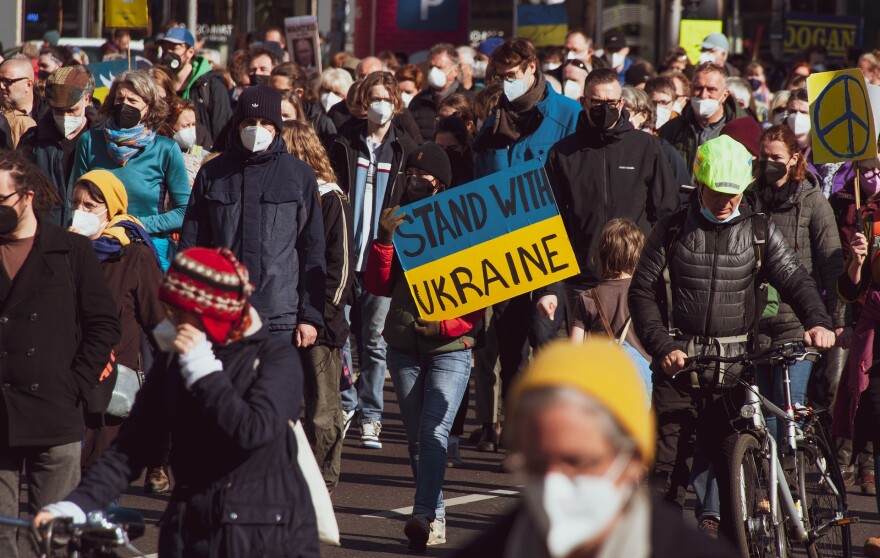It was a year ago that Russia launched a full-scale invasion of Ukraine. In the weeks leading up to the assault Russian President Vladimir Putin denied he was preparing for the attack despite the evidence of troop build-ups and intelligence from inside the Kremlin.
On February 24th a simmering eight-year conflict erupted into a hot war. And since then millions of Ukrainians have been forced from their homes, hundreds of thousands have been killed and Europe’s security order has been upended.
Also, Russia's military has been exposed as being corrupt and incompetent, but it remains a threat to freedom in Ukraine. Meanwhile Ukraine’s resistance has been more than the Kremlin anticipated forcing Russian to revise its planned takeover.
Under President Biden the United States commitment to Ukraine has been unwavering and continuing to increase. America has been supplying weapons, funds, training and military intelligence.
There are the constant reminders from Moscow of the risk of war escalation. Russia media has aired conversations about using nuclear weapons in the conflict. Russian forces have launched missile strikes at Ukrainian nuclear energy power plants, and now Putin is courting China to bring its economic might into the fight, increasing the warning that this could lead to World War III.
The battlefield remains bitterly contested with either side being able to claim having the upper hand. With no roadmap to peace anywhere to be found, the next year of combat in Ukraine promises to be bloodier than in the first 12 months.
What are the stakes in the war? What would an endgame look like?
Guest:
Charles Kupchan is a professor of international affairs at Georgetown University and a Senior Fellow at The Council on Foreign Relations.
He has served on the National Security Council for both the Clinton and Obama White Houses. Prof. Kupchan has a doctorate and a master's degree from Oxford and an undergraduate degree from Harvard. He is the author of 10 books. His latest is titled Isolationism: A History of America's Efforts to Shield Itself from the World.
"The Source" is a live call-in program airing Mondays through Thursdays from 12-1 p.m. Leave a message before the program at (210) 615-8982. During the live show, call 833-877-8255, email thesource@tpr.org or tweet@TPRSource.
*This interview will be recorded on Thursday, February 23.



